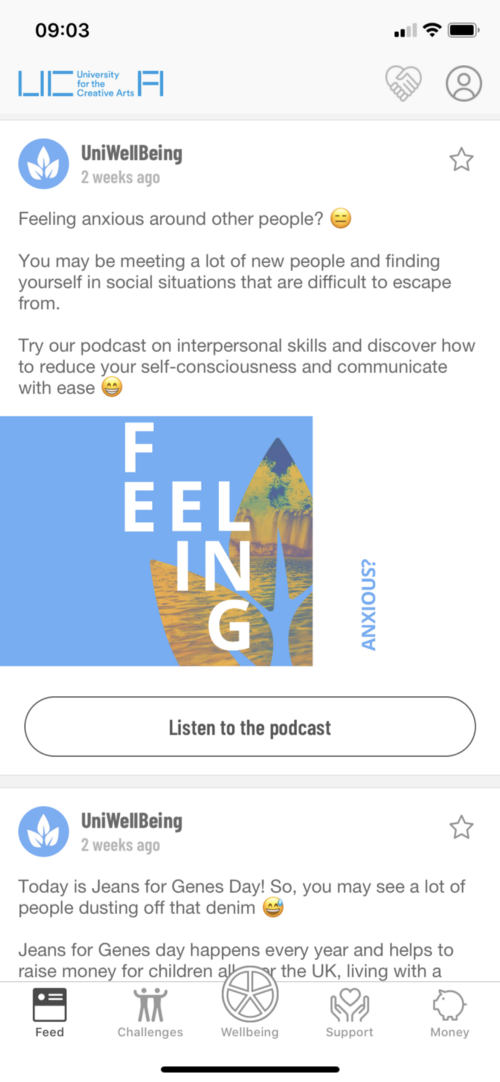When you move away from home for the first time, there’s a whole range of emotions you’ll be feeling — nerves, excitement, and probably a bit of apprehension — especially this year.
Being in an unfamiliar environment, moving away from your normal social networks and having your usual routines disrupted can all have an impact, and it’s understandable that you might feel homesick. If this happens to you, there’s a range of things you can do to work through it.
Firstly, it’s important to recognise the signs, aside from the obvious wish to be back in a familiar place with familiar people.
These are things like feeling lonely or isolated, overwhelmed and anxious, or more than usually emotional — perhaps you’re crying or feeling angry a lot— or even not sleeping or eating as you normally would.
In these socially-distanced times, it might feel like combatting those feelings will be harder than ever. But there are still things you can do, and we’re here to help.
Remember that it’s ok to feel homesick. There’s no shame in admitting you are missing home; most students are likely to experience this at some point! It’s helpful to acknowledge what you are feeling because it means you’re not trying to bury or push aside those emotions. We encourage you to talk to your housemates and friends about it — there’s a good chance they’re feeling the same as you.

If you find talking face to face with others daunting — especially when you’ve not known them very long — try togetherall.com. This is an online platform offering 24/7 peer support, where you can connect anonymously with others who are experiencing similar thoughts and feelings to you. Just register using your UCA email.
Secondly, keep busy. It might be tempting to hide away in your room — and there might be times when you have to because you’ll need to self-isolate— but creating a new routine of work tasks and fun activities, and sticking to it, will really help. If you don’t already have one, get yourself a planner and/or journal to organise your time.
And even if you are self-isolating, there’s actually lots you can still do socially— here are some hints and tips for staying connected
If you’re not self-isolating, then give yourself a change of scene and study in the library rather than your room, or take your laptop to a café and enjoy some coffee and cake while you work. Getting out and about and exploring your new home town will also give you a better sense of belonging and familiarity.

By keeping busy, you’ll also be able to connect and get involved with the UCA community.
You could take up a new hobby, take part in the Students’ Union’s COVID-secure freshers events, seek out some exercise, or become a volunteer — perhaps with a local community group.
Thirdly, create a home from home — you can make your room into a space that feels like a sanctuary by adding touches that remind you of home. For some ideas on how to do this, check out our tips on making your space work for you.
Fourthly — be kind to you. It’s never too early to think about how you are going to look after yourself and your wellbeing at university. By planning for potential slumps in your mental health and mood, you can have a few key strategies in place to help yourself when the time comes.

If you’re not sure where to start, the UCA myWellbeing app offers a range of resources and tools to help you build healthy habits and manage your mood. You can download it from the iOS App Store or Google Play and register using your UCA email.
Finally, if everything becomes a bit too much and you’re really struggling, or you are self-isolating and unable to go home when the opportunity arises (like Christmas or other term holidays) then please reach out to us for help.
Contact your campus Gateway, who can put you in touch with professional support staff who are experienced at helping students who are struggling with homesickness to settling into university life. You could also talk to your Personal Tutor.
The important thing to remember is that, if you find yourself feeling homesick, you’re not alone, and it will get better.
/prod01/channel_8/media/uca-2020/news/blog/1_RtNz5Lv1-EkQqCTct7BOkA.jpeg)